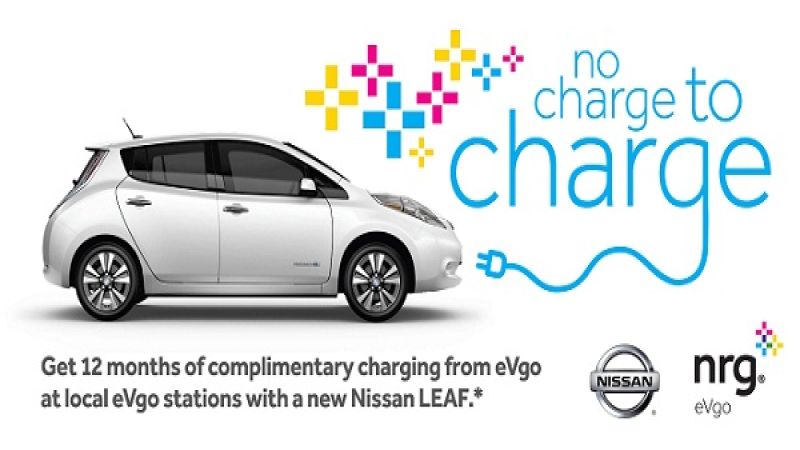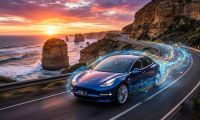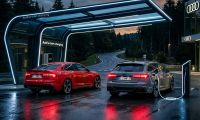On Tuesday, ChargePoint elected to abruptly depart from the EZ-Charge program that was to consolidate four of the most prominent public charging service providers in the United States for new Nissan LEAF owners. The frustrating departure of overwhelmingly the largest network leaves the promising “interoperability” arrangement with far fewer eligible charging stations.
In April at the New York Auto Show, Nissan announced it would extend its popular “No Charge to Charge” program to new LEAF owners first in 10, eventually in 25 major markets. Starting in July, those who bought a LEAF after April 1 will be able to use the EZ-Charge card to access any charging station of participating networks for free. Read more about the program here.
The original networks were AeroVironment, Blink by CarCharging, ChargePoint, and NRG eVgo. However, ChargePoint was uneasy with the terms of the agreement and decided to remove itself from the promotion.
ChargePoint reportedly was not happy with the amount of control NRG eVgo would have as the sole operator of the charging alliance. “You can’t have a single network provider that tries to dictate the terms,” said ChargePoint CEO Pasquale Romano (via SFGate).
ChargePoint suspects NRG of using the agreement to their unfair advantage, largely by gaining access to customer information from the vast ChargePoint network. “They want to monopolize the relationship with the driver," said Romano. "I think this is their attempt to gain some relevance in the market."
Romano also outlined his concerns to Green Car Reports that NRG may not have the same protection for personal information that ChargePoint guarantees to its customers.
NRG spokesman David Knox said the company was surprised that ChargePoint would desert the interoperability project, and indicated that the agreement among the companies stipulated that the customer data would only be available to the company that owned the charging station the customer elected to use.
Another point of disagreement was the single customer-assistance phone number on the back of the EZ-Charge card, intended for when customers ran into problems charging. The single number meant all calls would be funneled through NRG first and then to the appropriate network operator. According to Knox, ChargePoint wanted a separate number for each of the four networks to preserve its own customer service reputation. "That's just not a good customer experience," Knox said. "We thought we'd all agreed that the best practice was to have one number."
The withdrawal of ChargePoint comes as a big blow, as the network represents 17,346 public charging stations across the United States. Without it, the eligible EZ-Charge locations become much fewer and farther between.
ChargePoint’s withdrawal leaves just over 4,000 public chargers participating in the EZ-Charge program. CarCharging has 3,945 Blink chargers spread across nine major markets; NRG eVgo offers 89 public stations in the Dallas-Fort Worth, Houston, Southern California, Bay Area, and Washington DC markets but has plans for significant expansion in California; and AeroVironment operates a small number of stations, most notably 54 chargers on the “West Coast Electric Highway” in Oregon and Washington.
Nissan, obviously, is less than thrilled with these developments. The company issued a statement on Tuesday saying, “We are disappointed that ChargePoint has decided to withdraw from EZ-Charge. We remain confident that the three EZ-Charge partners - NRG eVgo, Blink Network and AeroVironment - provide excellent market coverage."
However excellent the remaining market coverage is, it would have been far more excellent had ChargePoint not dropped out. This is an unfortunate situation for both Nissan and LEAF drivers.
Romano himself said, "The first thing I care about at the end of the day, here, is the poor Leaf driver. We want that Leaf driver to be successful in accessing chargers." If that were really true, however, his company would have gone forward with the EZ-Charge partnership regardless of the control it would have had to relinquish to NRG.
In the end, ChargePoint was just too protective of its widespread public charging empire and seemed to be misinformed somehow from the start of the alliance. “We thought this was primarily going to be a Nissan program,” Romano told Green Car Reports, “not a program owned by NRG.” This is an odd claim, as everyone who followed the story was aware that the alliance would be managed by NRG eVgo.
It is really a shame that ChargePoint was unwilling to submit to NRG as the sole operator, because it would have been to the benefit of electric vehicle owners who just want some convenience and sanity in public charging.
Set Torque News as Preferred Source on Google











